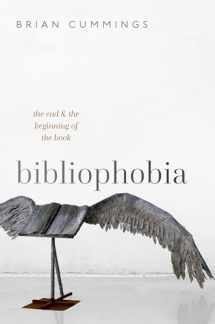
Bibliophobia: The End and the Beginning of the Book (Clarendon Lectures in English)
Book details
Summary
Description
Bibliophobia is a book about material books, how they are cared for, and how they are damaged, throughout the 5000-year history of writing from Sumeria to the smartphone. Its starting point is the contemporary idea of 'the death of the book' implied by the replacement of physical books by digital media, with accompanying twenty-first-century experiences of paranoia and literary apocalypse. It traces a twin fear of omniscience and oblivion back to the origins of writing in ancient Babylon and Egypt, then forwards to the age of Google. It uncovers bibliophobia from the first Chinese emperor to Nazi Germany, alongside parallel stories of bibliomania and bibliolatry in world religions and literatures. Books imply cognitive content embodied in physical form, in which the body cooperates with the brain. At its heart this relationship of body and mind, or letter and spirit, always retains a mystery. Religions are founded on holy books, which are also sites of transgression, so that
writing is simultaneously sacred and profane. In secular societies these complex feelings are transferred to concepts of ideology and toleration. In the ambiguous future of the internet, digital immateriality threatens human equilibrium once again.
Bibliophobia is a global history, covering six continents and seven religions, describing written examples from each of the last thirty centuries (and several earlier). It discusses topics such as the origins of different kinds of human script; the development of textual media such as scrolls, codices, printed books, and artificial intelligence; the collection and destruction of libraries; the use of books as holy relics, talismans, or shrines; and the place of literacy in the history of slavery, heresy, blasphemy, censorship, and persecution. It proposes a theory of writing, how it relates to speech, images, and information, or to concepts of mimesis, personhood, and politics. Originating as the Clarendon Lectures in the Faculty of English at the University of Oxford, the methods of Bibliophobia range across book history; comparative religion; philosophy from Plato to Hegel and Freud; and a range of global literature from ancient to contemporary. Richly illustrated with textual forms,
material objects, and art works, its inspiration is the power that books always (and continue to) have in the emotional, spiritual, bodily, and imaginative lives of readers.


We would LOVE it if you could help us and other readers by reviewing the book
Book review



